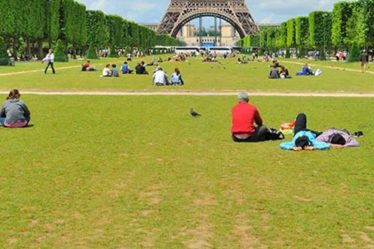Are you interested in an international experience? Here is 4 tips for doing an exchange program in France.
Participate in a exchange is one of the richest and most unforgettable experiences.
And what is the favorite destination for young students? France.
Indeed, the possibility of immersing oneself in another culture brings us great personal development, maturity and a broader vision of the world.
In addition to improving your level of French, study in France will allow you to discover a bit of art, history, gastronomy, etc.
Being a country in Europe also gives you the opportunity to get to know the countries around you.
So here is a list of 4 tips for doing an exchange program in France.
1. What type of program to choose?
Concerning the exchange programs, There are several types.
For example, there are university exchanges, French courses, work and research.
Each type of program has its positives and negatives.
University and research programs are generally longer and more expensive.
While French course and work programs are often shorter and more flexible.
It is important to carefully assess your personal situation to choose the program that best suits you.
NEWS
2. Which city to choose?
Most students do not think too much and quickly choose Paris as their ideal destination.
However, the truth is that France has many other amazing cities that are even better suited for foreign students than Paris.
In general, Paris has the highest cost of living and it is more difficult to be accepted into universities.
Therefore, it is interesting to consider the following cities, which are known to host many schools.international students :
- Lyons
- Toulouse
- Lille
- Nantes
- Marseilles
3. What documents are needed?
First of all, the Visa application For study in France varies depending on the country of the student.
European students do not need a visa because they have the right to move freely.
However, for non-European foreign students, it is necessary to go through the Campus France procedure.
Here are some basic documents requested by Campus France :
- Birth certificate ;
- Passport ;
- 2 recent photographs (3.5 x 4.5);
- Pre-registration or enrollment in an educational institution;
- Travel insurance for at least the first month of stay;
These documents may vary depending on the desired study program.
4. Can students work in France?
So yes, the Long stay visa allows the foreign students to work.
A student can work a maximum of 964 hours per year, or an average of 17 hours per week.
Thus, the student can organize himself in the way that suits him best.
For example, they can work normal hours during holidays, part-time throughout the year, etc.
The important thing is not to exceed these hours, because the government controls them.
In fact, working is a good option for foreign students.
This helps them learn the language and adapt to the culture.
Finally, take advantage of these 4 tips for doing an exchange program in France and start planning your trip!



